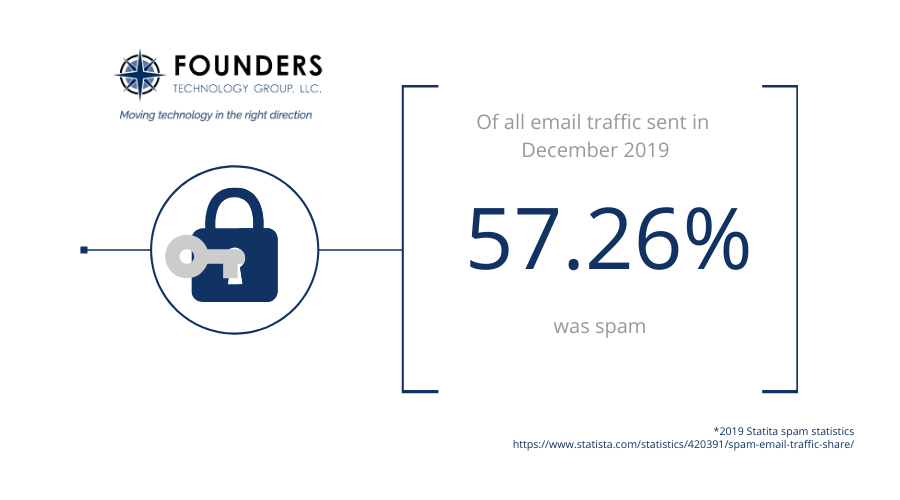Digital junk mail, also known as spam, continues to be a huge issue for businesses to this day. In fact, Statista revealed that 57.26% of all email traffic in December 2019 was spam.
At its best, spam is a nuisance that can overwhelm your inbox. But at its worst, it can be a gateway for malware and phishing attacks that can take down your company. To protect your business from it, you need a good email spam filter.
What is a spam filter?
Whenever you receive an email, a spam filter uses sophisticated algorithms to determine whether it should reach your inbox or not. Flagged messages are then sent to the spam folder or blocked completely. By doing so, spam filters protect your inbox from malicious actors while making sure that the emails you want to see aren’t drowned out by spam.
How do spam filters work?
There are different types of spam filters out there, each using a unique set of criteria to assess incoming emails.
#1 General blacklist filter
This spam filter stops emails that come from blacklists, or lists of IP addresses of flagged spammers collected by various email providers, internet service providers, and server administrators from user reports. Popular blacklists include SpamCop, Spamhaus, and URIBL.
#2 Header filter
Every email has header information that shows the following:
- IP address of every server that the email went through
- Date and time stamps
- Security signatures
- Other data to show where the mail came from
A header filter examines these data to look for anything suspicious, such as spoofed email addresses intended to deceive the recipient (e.g., yah00.com instead of yahoo.com).
#3 Rule-based filter
This spam filter applies rules that are designed by an organization, such as blocking emails from specific senders or those containing specific words in the subject line, body, or header.
#4 Content filter
True to its name, this spam filter analyzes the content — both the header and body — of an email to determine if it is spam or not. It typically blocks or sends an email to the spam folder if it checks off any of these criteria:
- Uses words that are commonly used in spam, such as “toll-free,” “dear friend,” “risk-free,” and “special offer”
- Contains mostly images and very little text
- Has attached executable files
- Contains links to blacklisted websites
For bulk commercial emails, those that do not have a valid physical business address and a clear unsubscribe method are also flagged as spam.
#5 Bayesian filter
This intelligent spam filter learns from your spam preferences and adapts to them. So when you mark an email as spam, it will analyze that message’s characteristics and filter out incoming emails that have similar features.
These are just some of the many types of spam filters out there. They are often used in combination for added security. To help you figure out the perfect mix of spam filtering for your business, turn to the experts of Founders Technology Group. We’ll provide you with robust email protection so your employees can confidently conduct business via email. Book your FREE IT consultation today. We serve clients in New Haven, Hartford, Springfield, Eastern Connecticut, and North Carolina.


